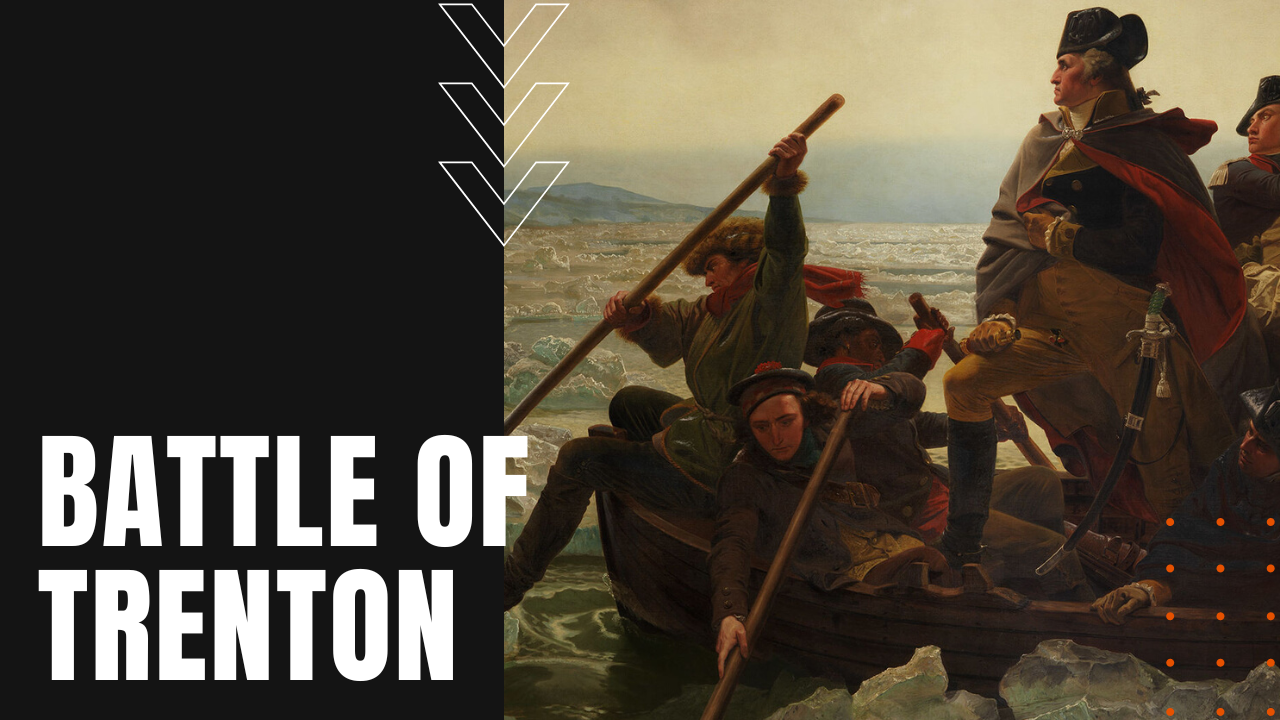Battle of Trenton: George Washington Leads a Much-Needed Victory

Why Was the Battle of Trenton Important?
Late in 1776, after back-to-back, morale-busting defeats at White Plains and Forts Washington and Lee—General George Washington’s Continental Army retreated across New Jersey to lick their wounds along the western banks of the Delaware River, prompting Washington to write a cousin in Virginia that
“I think the game is pretty near up.”
General George Washington
In the days that followed, Washington and his men were bolstered by Thomas Paine’s The American Crisis, helping to reignite a revolutionary spirit and resolve that had originally brought a young nation to war against British rule.
Battle of Trenton
Faced with mass expirations of enlistments, Washington urged his men to stay on for one final campaign, devising a gutsy Christmas Day plan to ferry his troops across the Delaware River for a three-pronged attack on a garrison of Hessian mercenaries wintering at Trenton New Jersey.
While 2,400 men made a successful crossing, some 3,000 others were forced back by a bitter nor’easter and an ice-choked river. Slowed by fearsome weather, Washington and his men began a nine-mile march into Trenton at 4:00 AM, December 26th, splitting his force into two columns led by Major Generals Nathanael Greene and John Sullivan, Greene to the north and Sullivan to the west, intended to pinch off any attempt at a Hessian retreat to the south.
Initially, the 1,400-man Hessian force at Trenton pulled back in hung-over surprise, before regrouping under the command of their much-disliked leader, Colonel Johann Rall. In what most historians see as a decidedly one-sided battle through the streets of Trenton, Hessian forces soon buckled under withering crossfire, taking the life of Colonel Rall, who formally surrendered to Washington before passing away after nightfall.
Who Won the Battle of Trenton?
While the Hessians saw 22 killed in action, including all four colonels of the garrison, 83 more were wounded and 896 made prisoners of war. The Americans suffered 2 fatalities during the march and 5 wounded in battle, including a serious shoulder wound to future president James Monroe, which nearly cost him his life.
Washington’s morale-boosting success at Trenton inspired immense troop loyalty to his leadership and command, which led to a second crossing of the Delaware a week later before a second American victory at the Battle of Princeton, proving at a critical juncture in the war, that militias from different colonies could be molded into a unified national force, making the Battle of Trenton, a major turning point in a young nation’s fight for independence.
